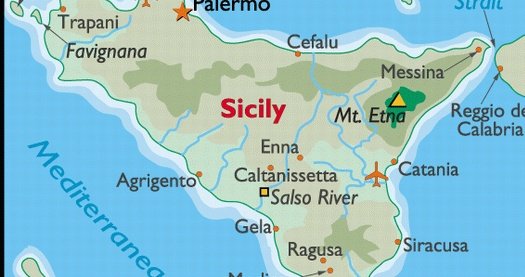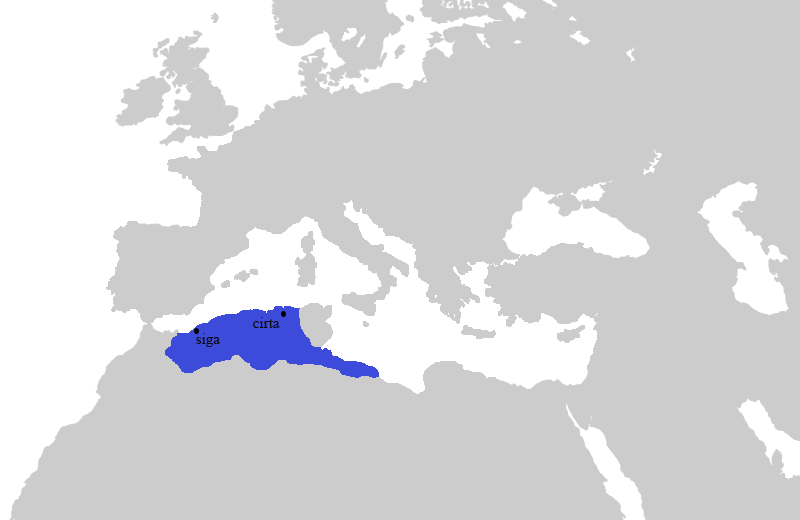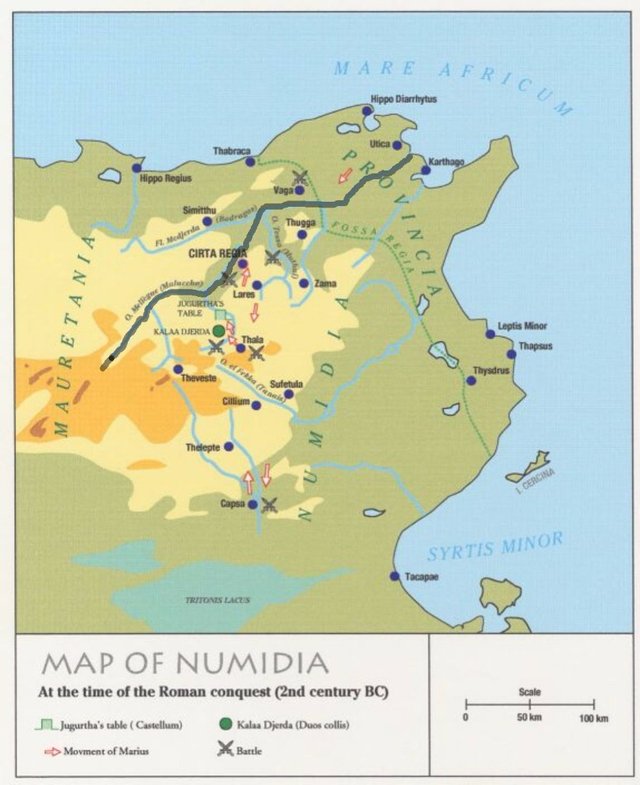The gracchan constitution still subsisted yet no prominent man lived during those years to occupy his place.
The government of the Senate was thus restored, the oligarchy now ruled under the gracchan constitution but with the intent of purging it in due time.
The government of the Senate was thus restored, the oligarchy now ruled under the gracchan constitution but with the intent of purging it in due time.
As we have seen, the first measure of the restored oligarchy was to react against the adherents of Gracchus. Yet the main enactments of Gaius, that is, the distribution of grain, the taxation of Asia and the arrangements of tribunals and jurymen, remained untouched.
Whatsmore, the restoration procured to keep the mercantile class and the proletariate class satisfied by the Livian laws.
Gaius& #39; projects to promote public welfare, like the legal equalizing of Rome and the latins, and later with the provinces, were heavily suppresed.
Gaius& #39; projects to promote public welfare, like the legal equalizing of Rome and the latins, and later with the provinces, were heavily suppresed.
It should be added, that this project aimed to solve the economic and social problems by a comprehensive system of emigration, with the colony of Junonia in Carthage as example.
The aristocracy avoided this project of equality, Italy was to remain the sole leading city.
The aristocracy avoided this project of equality, Italy was to remain the sole leading city.
The democratic party managed to partially breach the restoration in one opportunity: during transalpine conquests, Marcus Flaccus founded the colony of Narbo in 118 b.C
The Italian colonies of Gaius were also cancelled, only the one next to Tarentum was allowed to subsist (Neptunia).
The Livian colonial law was tacitly shelved, avoiding the trouble of the 36.000 farm allotments that were promised. The tribune of the people Spurius Thorius..
The Livian colonial law was tacitly shelved, avoiding the trouble of the 36.000 farm allotments that were promised. The tribune of the people Spurius Thorius..
abolished the allotment comision and implemented a rent by a law. A decree of the people 8y later would convert the occupied domain land into rent-free private property of the previous occupants.
Future domain land was not to be occupied but leased or used as public pasture.
Future domain land was not to be occupied but leased or used as public pasture.
The hostile powers aroused by Gracchus, the equestrian order and the proletariate, also subsisted. The latter still were recognized a title for aliment, the first were still selected as jurymen from the mercantile class.
Overall, the restoration ruled according to an aristocratic character and desires but under the constitutional order of a tyrannis, established by Gracchus.
The government of the restoration failed to exercise power over the proletariate and the mercantile class.
The government of the restoration failed to exercise power over the proletariate and the mercantile class.
The nation as a whole was in a state of intellectual and moral decline, specially the men of the restoration.
Before the revolution, the oligarchy was composed by a dissolute aristocracy yet they possessed some exceptional individuals. To recall: S. Aemilianus, Quintus Metellus
Before the revolution, the oligarchy was composed by a dissolute aristocracy yet they possessed some exceptional individuals. To recall: S. Aemilianus, Quintus Metellus
Gaius Laelius, Publius Crassus, Publius Scaevola (known jurist).
After the revolution, the governing was characterized by terror and family-policy (just like in the days of the patriciate). For example, two nephews of Quintus Metellus attained several consulships.
After the revolution, the governing was characterized by terror and family-policy (just like in the days of the patriciate). For example, two nephews of Quintus Metellus attained several consulships.
Marcus Aemilius Scaurus illustrates the deficiency of statesmanship and military talent. Leader in the senate, known orator, author and promoter of public works yet his achievements were insignificant: victories in some alpine villages and minor laws about voting and luxury.
When the men of restoration were assigned with military command, they intrusted the command to an officer of lower lineage. In this same period we find the diffusion of greek military manuals, which gave way to charlatanism in the upper circles.
In reference to the administration, the social ruin spread abruptly. Either the aristocracy or the mercantile class bought the small-holder out, thus the small scale farming dissapeared again
To illustrate the poverty, there were only 2000 wealthy families among the citizenry.
To illustrate the poverty, there were only 2000 wealthy families among the citizenry.
One more example helps to illustrate the magnitude of this: one insurrection was not headed by a slave, but by the roman knight or eques, Titus Vettius, who was driven to revolt by the debts that afflicted him.
In reference to the provinces, the legislation which intrusted the mercantile class w/ control of the administration of justice resulted in unconditional indulgence and impunity towards the capitalists that operated in those regions.
Piracy was rampant along the mediterranean...
Piracy was rampant along the mediterranean...
to the point that a small fleet from the mercantile cities was dispatched to Cilicia to disrupt piracy. The praetor Marcus Antonius not only suceeded in supressing it but also some romans settled in that region.
This was the first step to establishing the province of Cilicia.
This was the first step to establishing the province of Cilicia.
Insurrections of the provincial proletariate and slaves was recurrent. The chief seat of the insurrection was once again Sicily with its masses of slaves from Asia Minor and extensive plantations.
The cause of the insurrection was the government& #39;s attempt to check the iniquity of the slaveholders. After the First Sicilian Revolt the situation deteriorated further, even the free provincials were enslaved.
The Senate enacted against this and the governor of Sicily, Publius Licinius Nerva appointed a court for deciding on claims of freedom. Thus 800 processes against slave-owners arose.
The planters compelled the governor to suspend the processes and succeeded.
The planters compelled the governor to suspend the processes and succeeded.
Those who were forced to desist assembled in the mountains of Sicily. The governor and the city militia were unprepared to deal with an uprising, the former managed to conclude an alliance with one faction of the revolt.
But the remaining revolting slaves defeated the garrison of Enna, and gained momentum by swelling their ranks and acquiring weaponry.
These syrian slaves placed the slave Salvius at their head as King Tryphon. The slave progressed and gained lands in the interior of the island.
These syrian slaves placed the slave Salvius at their head as King Tryphon. The slave progressed and gained lands in the interior of the island.
A second revolt broke out in the west coast, headed by Athenion. He gained popularity among greeks and syrians for his prophetic "talents". He was, like Cleon, a bandit in Cilicia, and knew about warfare. He formed a compact army of armed slaves while employing the other slaves.
Athenion would voluntarily submit to King Tryphon to preserve the unity of the revolt. In this manner, they gradually acquired absolute control over large extensions of the island.
Unable to engage in a pitched battle, the government limited itself to defend the towns.
Unable to engage in a pitched battle, the government limited itself to defend the towns.
But the production of food, that once fed Italy, came to a halt and gave way to famines. This forced the authorities to supply the cities with food.
The Cimbri war made it difficult to field an army but eventually one was formed under the praetor Lucius Lucullus.
The Cimbri war made it difficult to field an army but eventually one was formed under the praetor Lucius Lucullus.
The praetor was victorious but Athenion continued at the head of the revolt after the death of Tryphon.
Manius Aquilius, who excelled against the Teutones, was intrusted with the command. After a two years struggle, the general personally slayed Athenion in single combat.
Manius Aquilius, who excelled against the Teutones, was intrusted with the command. After a two years struggle, the general personally slayed Athenion in single combat.
Up to now we have seen the general character of the restoration, its inner workings and deficiencies, the social and economic state and the slave revolts which ended in 100 b.C
We will now see the Jugurthine War (112-106 BCE) that occured in northern Africa.
We will now see the Jugurthine War (112-106 BCE) that occured in northern Africa.
The Kingdom of Numidia now possessed several prosperous cities that used to belong to Carthage, like Bona and Lebidah.
After the death of Masinissa, Scipio divided the functions of government among the three heirs. After two of them died, Micipsa ruled alone.
After the death of Masinissa, Scipio divided the functions of government among the three heirs. After two of them died, Micipsa ruled alone.
The feeble old man was more interested in greek philosophy than ruling, thus the state affairs befell on Jugurtha, an illegitimate nephew of the King.
The prince wad a proven commander and administrator. He was well positioned within Numidia and in Rome itself.
The prince wad a proven commander and administrator. He was well positioned within Numidia and in Rome itself.
Micipsa would adopt Jugurtha and would divide the functions once again between his now three sons. This arrangement was guaranteed by the Roman government.
After the King& #39;s death, his natural sons resisted the arrangement and regarded Jugurtha as illegitimate.
After the King& #39;s death, his natural sons resisted the arrangement and regarded Jugurtha as illegitimate.
One of the natural sons was soon killed, while the other, Adherbal, fled to Rome to make his complaint.
Jugurtha was knowledgeable in roman intrigues and warfare (in the Numantine Wars). He sent a diplomatic mission to Rome in which Adherbal was incriminated for the conflict.
Jugurtha was knowledgeable in roman intrigues and warfare (in the Numantine Wars). He sent a diplomatic mission to Rome in which Adherbal was incriminated for the conflict.
The Senate ordained that Numidia should be divided in two. Lucius Opimius carried out the division and Jugurtha was favoured more than Adherbal, gaining the ports and fertile lands.
After failing to provoke him into a war, Jugurtha undertook the siege of Cirta.
After failing to provoke him into a war, Jugurtha undertook the siege of Cirta.
Adherbal dispatched embassies to Rome, explaining the situation. Marcus Scaurus was sent to negotiate but the peace talks broke down.
Jugurtha eventually captured the city and executed his brother. Africans and latins within Cirta were executed as well.
Jugurtha eventually captured the city and executed his brother. Africans and latins within Cirta were executed as well.
The Senate and the mercantile class both condemned the event, the latter much more due to the killing of merchants.
When Gaius Memmius was elected as tribune of the people, the Senate, which avoided war, gave in and allowed the war declaration.
When Gaius Memmius was elected as tribune of the people, the Senate, which avoided war, gave in and allowed the war declaration.
Lucius Calpurnius Bestia was involved in the war preparations while Marcus Scaurus was assigned as commander.
Jugurtha was soon demoralized, the cities surrendered and the King of Mauretania allied Rome. A treaty was concluded, only reparations had to be payed.
Jugurtha was soon demoralized, the cities surrendered and the King of Mauretania allied Rome. A treaty was concluded, only reparations had to be payed.
The legal validity of the treaty was assailed due to rumours of bribery, including Scaurus. Memmius proposed that Jugurtha should be summoned in order to explain the irregular negotiations that took place.
The King appeared in Rome but when Memmius was started his questioning..
The King appeared in Rome but when Memmius was started his questioning..
he was checked by the veto of a colleague. Thus the negotiations protracted.
Massiva, one of the grandsons of Masinissa, asserted his claims to the throne in front of the Senate. He was killed shortly after by Bomilcar, a confidant of the King.
Massiva, one of the grandsons of Masinissa, asserted his claims to the throne in front of the Senate. He was killed shortly after by Bomilcar, a confidant of the King.
This event broke down the negotiations, Jugurtha fled to Numidia and the treaty was cancelled. In this way, the war resumed.

 Read on Twitter
Read on Twitter





